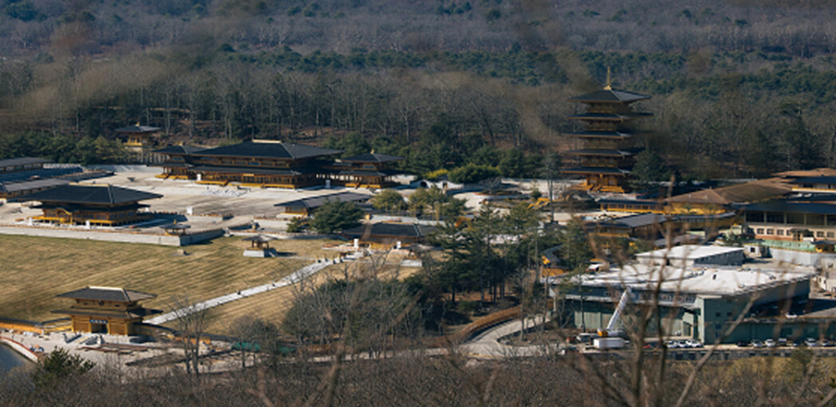Shen Yun’s young performers train on a 400-acre compound in rural upstate New York.Credit...The New York Times
The dance group has discouraged performers from seeking medical care when they were injured and has subjected them to emotional abuse and manipulation, The Times found.
Shen Yun Performing Arts, the traditional Chinese dance and music group, is an international sensation — with hundreds of performers on its annual world tour and holdings of more than $265 million.
But a New York Times investigation found that the group’s success has come at a high cost for its young performers, many of whom were teenagers.
In interviews with 25 former dancers, musicians and instructors, The Times found that performers in Shen Yun were routinely discouraged from seeking medical care for injuries and often worked grueling hours for low pay — while being subjected to emotional abuse and manipulation.
The show seeks to spread the message of Falun Gong, a spiritual movement with roots in China that has been persecuted by the Chinese government for more than two decades. Its performers come from all over the world to live and train in upstate New York, and nearly all of them have family members who practice Falun Gong.
Many performers said they pushed themselves to their limits out of reverence for Falun Gong’s founder and spiritual leader, Li Hongzhi — seeing him as a living god and the creator of the universe.
Mr. Li, who is in his early 70s, helped create Shen Yun in 2006. He and other lieutenants oversee the group’s training inside a secluded 400-acre compound known as Dragon Springs in Cuddebackville, N.Y. Performers are taught to greet Mr. Li as “shi fu,” the Chinese word for “master.”
Here are five takeaways from the investigation:
Many performers arrive as teenagers and remain well into their adult lives.
Mr. Li has said that audience members can be saved by absorbing Shen Yun’s message.
The Times interviewed former performers who started touring with Shen Yun when they were as young as 12 years old. After moving to the Dragon Springs compound, they studied at Fei Tian Academy of the Arts, a Falun Gong boarding school. The compound also houses a college with undergraduate and graduate programs.
Students cannot leave the compound without special permission, and they often see their parents only once a year during a two-week summer break.
Performers danced through injuries, unwilling to ask for medical care.
Mr. Li has said that true believers in his teachings can expel illnesses from their bodies without medical treatment. For this reason, many Falun Gong practitioners try to avoid going to the doctor when they are sick.
At Shen Yun, former performers said that when they got sick or injured, instructors told them it signaled something was wrong with their spiritual state. Injured performers were encouraged to “send forth righteous thoughts,” Mr. Li’s prescribed meditation technique, in order to heal.
Former dancers said they performed through dislocated kneecaps, sprained ankles and other injuries because they did not want to be criticized as insufficiently faithful to Mr. Li.
Unlike many other major performing arts companies, Shen Yun does not provide routine access to physical therapists or doctors — even though its dancers perform back-bending flips and other moves that contain elements of ballet and gymnastics.
The female dancers were particularly vulnerable to injury because they were also under constant pressure to maintain a rail-thin physique. Former dancers described weigh-ins in which instructors berated them in front of their peers and called them fat.
Performers worked long hours for low or no pay.
The student performers endured a punishing schedule, frequently putting in 15-hour days.
On their most recent five-month tour, Shen Yun’s schedule shows, its eight troupes performed more than 800 shows. Often, they put on two shows a day.
Many former performers said they were not paid at all in their first year on tour. By their early to mid-20s, most of the former performers interviewed by The Times said, they were being paid $12,000 a year or less.
Shen Yun promoted an atmosphere of fear.
Mr. Li and his subordinates told performers that any mistakes they made onstage could doom their audience to hell, the former performers said. After shows ended, some of Shen Yun’s leaders would seize on errors and cast them as spiritual failings.
The group promoted an atmosphere of fear, former performers said, stoking a distrust of the outside world and discouraging dissent. Students were barred from looking at “ordinary media,” the movement’s name for unapproved news outlets.
Shen Yun also exerted control over performers’ romantic lives. Former performers said Mr. Li’s wife sometimes tried to arrange relationships between foreign students and U.S. citizens.
Many performers who wanted to quit faced threats and intimidation.
Shen Yun’s leaders told performers they would go to hell or face danger if they left, because they would lose Mr. Li’s divine protection.
Seven former performers said they were told that if they quit Shen Yun, they would have to repay the cost of schooling, room and board that they had been given under full scholarships, an amount that could reach into the hundreds of thousands of dollars.
Source Link:https://www.nytimes.com/2024/08/16/nyregion/shen-yun-nyt-investigation.html






